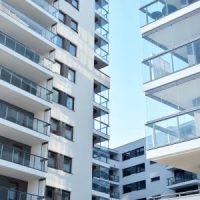HB913 May Make Major Changes To Post-Surfside Condo Bill

In 2021, the tower at Champlain Towers South in Surfside, Florida, collapsed, killing almost 100 people. In the aftermath, the Florida state legislature passed a bill requiring that condo associations contribute certain amounts toward reserves (designed for emergency repairs) each year. However, a bill recently passed in both houses of the Florida legislature (as of this writing) seeks to undo the requirements previously voted into law.
Significant “Relaxation” Of Post-Surfside Regulations
The bill, HB 913/SB 1742, attempts to make several significant changes to the laws surrounding reserve accounts, most notably allowing condo associations to get lines of credit with which to pay repairs, and “pausing” the same reserve fund contributions that the previous law required for a period of two years. The bill will also permit remote voting for condo owners if 25 percent of them (or more) request the option.
Another important change pushed by this bill would urge the state’s Department of Business & Professional Regulation (DBPR) to create a standard form for structural integrity reserve studies (SIRS), as well as barring any entity that conducts SIRS from conducting repairs on the same buildings. Both the sponsors of the respective houses’ bills cited confusion in their constituents with regard to just what was required of them under the post-Surfside regulations.
Short-Term Positives; Long-Term Negatives?
As of this writing, the bill has passed both houses of the legislature, and awaits the governor’s signature. It appears as though the bill is a fait accompli – but it is also worth noting the potentially problematic future it opens up. Allowing condo associations to pay for repairs with loans or lines of credit does not fix the issue of the association being cash-strapped; rather, it simply kicks the proverbial can down the road – it is not implausible that many condo associations will simply fold later instead of now.
No one wants condo owners to be unceremoniously ejected from their homes, particularly those who own their homes already. However, this bill does not provide an escape from monetary concerns; in fact, it may create deeper financial problems for some condo associations than simply complying with the original reserve requirements would in the long run. The cautious condo owner and board should still remain aware of their overall financial picture, no matter what the eventual outcome of this bill may be.
Contact A Tampa Condominium Law Attorney
Regardless of the ultimate outcome of HB 913/SB 1742, both condo boards and condo owners should be aware of the potential for financial issues down the line. If you have questions or concerns about your own financial position, a Tampa condominium law attorney from the Seward Law Office may be able to assist. Contact our office today to schedule a consultation.
Source:
.miamiherald.com/news/special-reports/surfside-investigation/
